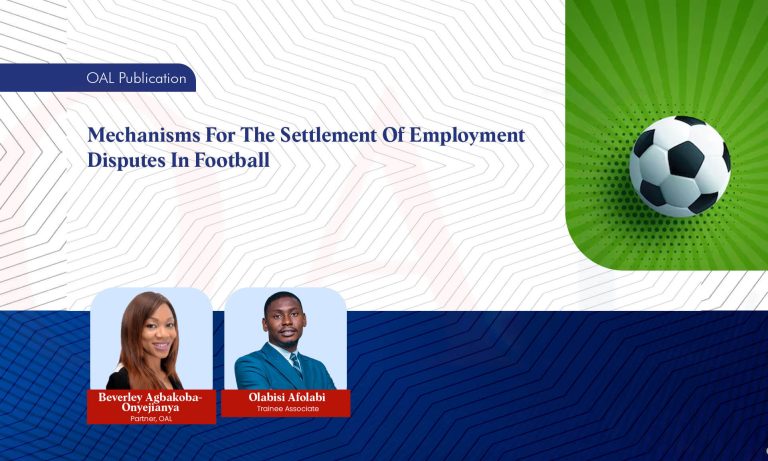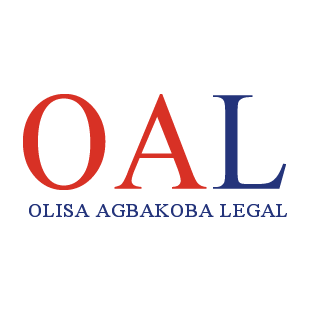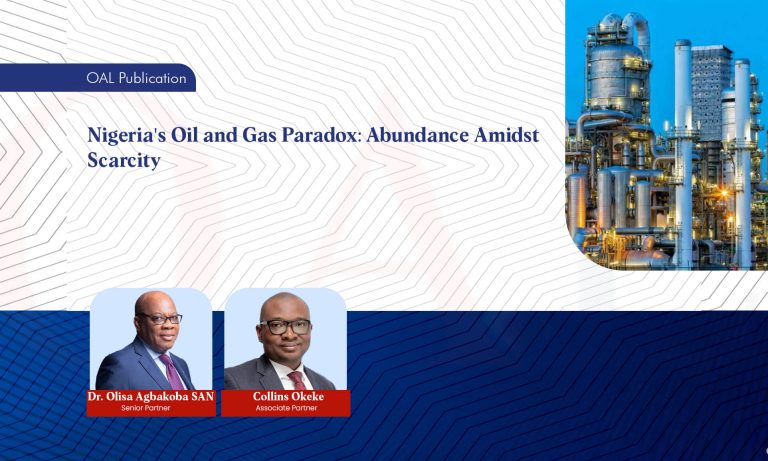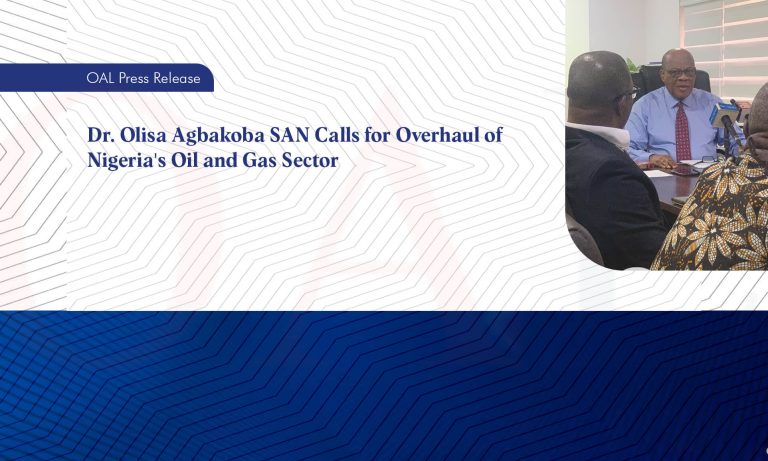
Nigeria’s Electoral Processes and Institutions: Rebuilding Using the Justice Uwais Report | Olisa Agbakoba Legal

Nigeria’s Electoral Processes and Institutions Rebuilding: A Case For the Implementation of the Justice Uwais Report
THE 2019 GENERAL ELECTIONS
The 2019 general elections were conducted on the framework of the Constitution of the Federal Republic of Nigeria 1999 (as amended) and Electoral Act 2010 (as amended). There were many problems with the 2019 general elections as the reports of local and international election observers reveal. In sum, there were logistical problems. INEC could not efficiently distribute election materials across the country resulting in the postponement of the elections from February 16th to February 23rd, 2019. Even after the postponement, INEC did not get election materials to some polling booths in the country until midday of the election.
The card reader machines used to authenticate registered voters failed to work in most parts of the country disenfranchising thousands of eligible voters. The voting and collation procedure for the general elections was slow and cumbersome. INEC did not collate and announce election results in real-time. This created tension and a lot of anxiety. The 91 registered political parties did not show any remarkable improvement in electoral penetration. Many of the parties behaved as annexes of the dominant political parties (that is the People’s Democratic Party (PDP) and the All Progressives Congress (APC)).
The few political parties that actively participated in Nigeria’s electoral processes garnered about 3 percent of total votes cast. There is a general lack of confidence in the courts and election tribunals. The courts and election tribunal rules are skewed unfairly against the petitioner. Four major issues can be said to characterize the 2019 general elections. The first is the abject performance of Nigeria’s political parties. The second issue is the apparent inability of the Independent National Electoral Commission (INEC) to deliver on its mandate. The third is the slow and cumbersome procedure of voting and collation of election results. The Fourth is the lack of confidence in the election conflict management processes and institutions.
REPORT OF THE ELECTORAL REFORM COMMITTEE OTHERWISE KNOWN AS THE JUSTICE UWAIS REPORT
In the aftermath of the 2007 general elections, the federal government established a 22 Member Electoral Reform Committee. The Committee was chaired by Hon. Justice Mohammed Lawal Uwais Retired. The Committee was charged with examining “…. the entire electoral process with a view to ensuring that that we raise the quality and standard of our general elections thereby deepen our democracy” This was understandable since that election was regarded as one of the worst in the nation’s electoral history.
The Electoral Act 2010 is a direct response to the Uwais Report published in 2008. Even though many aspects of the Uwais Report influenced the Electoral Act 2010 there are many aspects of the Uwais Report that were abandoned. Certain Amendments to the Constitution of the Federal Republic of Nigeria 1999 were also a reaction to the Uwais Report; it was felt in some quarters that the adopted portions of the Uwais Report provided an adequate legal framework for elections in Nigeria. Regrettably, that has not been the case. The outcome of 2011, 2015, and 2019 general elections in Nigeria has been far from acceptable. This paper examines the four major issues that characterized the 2019 general elections and proffers solutions from the Uwais Report.
IMPROVING THE PERFORMANCE OF POLITICAL PARTIES
Nigeria has 91 registered political parties. 73 out of the 91 registered political parties participated in the February 23, 2019, Presidential Elections. This is the highest number of Presidential candidates in Nigeria’s electoral history. However, the results of the elections released by INEC did not reflect the huge number of political party parties that participated. Out of a total of 27, 324, 583 valid votes cast at the election, the dominant parties (that is PDP and APC) garnered a total of 26,454,825 votes. The other 71 political parties scored 869, 758 votes which are about 3% of total valid votes cast. This has raised concerns about the continued existence of 91 registered political parties. In the past, several efforts were made to limit the number of registered political parties in Nigeria by imposing stringent registration requirements. In view of the constitutional right to freedom of association, the courts have adopted a liberal interpretation of S 222 of the Constitution that deals with the registration of political parties.
In INDEPENDENT NATIONAL ELECTORAL COMMISSION V. ALHAJI ABDUL KADIR BALARABE MUSA [2003] FWLR (PT. 145) 729, INEC in the exercise of its powers in the Electoral Act 2001 and the Constitution to register political parties introduced registration guidelines higher than those contained in the Constitution of the Federal Republic of Nigeria 1999. The Supreme Court held that INEC cannot impose registration requirements higher than those prescribed by the Constitution. In the aftermath of the 2011 general elections, INEC tried to deregister certain political parties in accordance with the powers granted by Section 78 (7) of the Electoral Act 2010 which enable INEC to deregister a political party that breaches any of the requirements of registration or fails to win the presidential or governorship election or a seat in the National or State Assembly. In a plethora of cases, the courts have stopped INEC from deregistering political parties.
There is no doubt that some political parties have become rent-seekers extracting value for their existence. The Uwais Report tried to address this mischief by incentivizing genuine political parties. The Uwais Report recommended a combination of proportional representation and the majoritarian rule of representation at federal, state, and local levels. The mixed system would entail creating an additional 30% of the existing legislative seats in the national, state, and local government levels for the purposes of proportional representation. The threshold shall then be established which is the number of votes cast in the First-Past-The –Post-election divided by the number of available proportional representation seats. Political parties shall then nominate for proportional representation at 30% female candidates and 2% physically challenged candidates for legislative elections. Political parties that win up to 70% of the seats in an election conducted under the First-Past-The – Post-election shall not be eligible to benefit from the propositional representation. The criterion, for the production of the party list, was to be included in an amended Electoral Act. Unfortunately, this Uwais Report recommendation was not incorporated into the Electoral Act 2010. The need for proportional representation is overdue and would greatly assist with the growth and performance of genuine political parties in Nigeria.
ADDRESSING INEC’s INEFFICIENCY
The Independent National Electoral Commission (INEC) by virtue of Paragraph 15 Part 1 of the Third Schedule to the Constitution of the Federal Republic of Nigeria 1999 (as amended) is saddled with the task of conducting elections, carrying out voter’s registration, preparing logistics for the elections, registration of political parties, among other functions. INEC, as presently constituted, is overburdened, ill-equipped, and lacks the required manpower to effectively deliver on its mandate without hiccups. In the 2019 presidential elections, INEC did not efficiently deliver election materials across the country. This resulted in the postponement of the Presidential Election from February 16th, 2019 to February 23, 2019. Even after the postponement, reports of international and local observers indicate, INEC did not deliver election materials to some polling booths across the country until midday into the elections.
This is not the first time INEC has had to postpone elections for logistic reasons. In 2011, INEC cited logistics reasons for the shift in the date of the general election. The commission had said that vital election materials had not been supplied days to the general elections. The Uwais Report addressed this challenge by recommending the creation of the following special commissions: the Political Parties Registration and Regulation Commission, the Electoral Offenses Commission, a Constituency Delineation Commission, and the Centre for Democratic studies. This was primarily to unbundle INEC and refocus it strictly on conducting general elections while the new bodies would be saddled with pre and post elections matters. Sadly, the recommendation was not incorporated into the Electoral Act of 2010. In view of INEC’s continued dismal performance, it is imperative to reconsider the Uwais Report Recommendation to unbundle INEC.
MODERNIZING NIGERIA’S VOTING AND COLLATION PROCESS
Nigeria’s electoral processes currently comprises of a semi-electronic voting system. Registration of voters is done electronically but voting and collation of results are done manually. The use of card reader machines for authentication of voters has not significantly improved the credibility of the election process. The present method of voting in Nigeria is the Open Secret Ballot System (OSBS) in which the prospective voter goes through a process of accreditation, receives a ballot paper from the appropriate poll official, and thereafter makes the confidential thumb impression in favor of the political party of choice in a secret voting compartment before dropping the ballot in the box positioned in the open, in the full glare of officials, security and party agents. The collation of election results is also done manually. It is incrementally done at polling booths, electoral wards, local governments, states, and federal for the presidential election.
This process is ridiculously slow and cumbersome. In the 2019 presidential elections, it took INEC a total of 4 days to conclude the process of voting and collation of results. This created tension and a lot of anxiety. There is an urgent need to modernize the voting and collation process by introducing electronic voting. Electronic voting will drastically reduce the time it takes to vote, collate, and release election results. It will, to a certain level limit the involvement of persons from accreditation to result in the release and increase voter participation. A voter can register in one part of the country and vote in another.
The Uwais Report recommended a gradual introduction of electronic voting in Nigeria’s electoral processes. The report was submitted in 2008. 11 years after, Nigeria is ready for electronic voting. The Electoral Act 2010 (as amended) does not make express provision for electronic voting. Rather, Section 52 (2) of the Electoral Act 2010 (as amended) gives INEC the discretion to determine the procedure for voting. It was on the basis of Section 52(2) of the Electoral Act 2010 (as amended) that INEC introduced card reader machines. What is unclear however is whether INECs discretion in s 52 (2) extends to introducing electronic voting. The Electoral Act Amendment Bill 2018 has amended s 52 (2) to now include electronic voting and any other methods of voting INEC determine from time to time. Regrettably, the Electoral Act Amendment Bill 2018 was not signed into law by President Buhari before the 2019 Elections. The President claimed the 2018 amendment was too close to the 2019 elections but promised to give effect to the law after the elections. It is important President Buhari gives effect to the Electoral Act Amendment Bill 2018 as promised.
RESTORING CONFIDENCE IN THE ELECTION PETITION TRIBUNALS
The process of dealing with complaints and resolving election disputes is critical to the survival of any democracy, particularly a fragile one like Nigeria. In Nigeria’s electoral processes, in addition to monitoring the voting and collation process, attention must also be paid to the process of dealing with election complaints. Over the years, this has not been the case. The result is that the election petition process has become unfairly skewed against the petitioner. Take for instance the issue of burden of proof otherwise known as the doctrine of substantial compliance, which is to the effect that an election shall not be invalidated by reason of irregularities or non-compliance to the electoral law as long as it is conducted substantially in accordance with the electoral laws and the irregularities and non-compliance did not affect the result of the election. The substantial compliance doctrine places two evidential burdens on a petitioner.
The first burden is that the petitioner has to prove irregularities and non-compliance with the electoral law. The second evidential burden is that the petitioner has to prove that the irregularities and non-compliance with the electoral law affected the results of the election. The substantial compliance doctrine was first applied by the Supreme Court in AWOLOWO V. SHAGARI (1979) NSCC 87. It was applied in several other cases such: BUHARI V. OBASANJO (2005) 13 NWLR (PT. 941), OBASANJO V. YUSUF (2004) 9 NWLR (Part 877) 144, BUHARI V. INEC & 4 ORS (SC 51/2008) 12 DEC 2008, ABUBAKAR, GCON & 2 ORS V. YAR ADUA & 5 ORS (SC72/2008) 12 DEC 2008, CPC V. INEC & 40 ORS SC 426/2011) 28 DEC 2011. It is on record that no presidential election has been upturned in Nigeria on account of the doctrine of substantial compliance.
The Uwais Report relieved this onerous burden placed on the petitioner by recommending that the burden of proof for election petitions be placed on INEC and the Respondent. The thinking is that since INEC conducted the election and the Respondent is the beneficiary, it will be easy for INEC and the Respondent to prove that the election was conducted substantially in accordance with the electoral law. Unfortunately, this Uwais Report recommendation was not incorporated into the Electoral Act 2010. Shifting the burden of proof in election petitions from the Petitioner to INEC and the Respondent will substantially restore confidence in the election tribunals.
CONCLUSION
The recently concluded 2019 general elections have revealed that there are major issues with Nigeria’s electoral processes and institutions. There is an urgent need to rebuild Nigeria’s electoral processes and institutions. The Uwais Report contains viable recommendations that can transform Nigeria’s elections. It is our hope that the government will reconsider some of the recommendations of the Uwais Report with a view to making the outcome of elections in Nigeria transparent, credible, and acceptable.
Written By: Collins Okeke, Senior Associate/ Head-Public Interest and Development Law Practice Group – Olisa Agbakoba Legal.
Author



